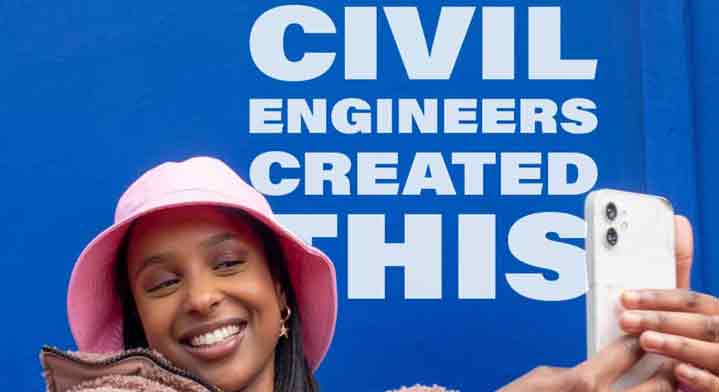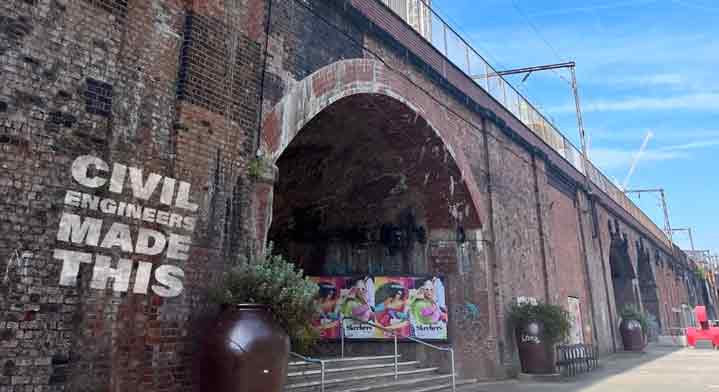Explore civil
Day in the life of a Civil Engineering student
Follow second-year student Monyka as she goes about her day doing buckling tests in the structures lab, attending a math tutorial, leading a PASS session, and playing card games with her flatmates to cap off a productive day. And who knows – this could be you some day!
Creating a better world
Be it providing access to drinking water or designing a sustainable city, the difference you make as a civil engineer is tangible.
On this path, you directly impact people’s lives every day.
Look around you: what would you change?

Building a resilient future
With temperatures rising, societies developing and demands increasing on our planet, civil engineers are needed now more than ever.
As we face new challenges, we need people like you to help us build a more resilient world.

Hear from our students
Studying civil engineering at Manchester
Ever wondered what it’s like to pursue civil engineering at The University of Manchester? Don’t just take it from us, hear it from our students!
Why did our students choose civil engineering?
While all civil engineers are united by the goal of building a future that lasts, their journey had different starting points.
Here’s why our students decided to embark on the path of civil engineering. What’s your reason?
Civil is about bringing ideas on a page into real life, I love that it's an opportunity to make a difference to the future - you're literally impacting how society will operate and adapt in years to come.
Apply now
Undergraduate courses for entry in 2026
Browse undergraduate courses in the Department of Civil Engineering, all of which are accredited by the Joint Board of Moderators.
Submissions for 2026/27 entry are now open on UCAS.
Where to go from here
Getting to know Civil

